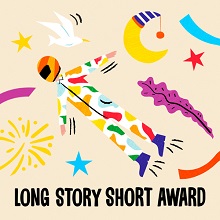I remember when my world divided into male and female, when the girls screamed "Shaun has cooties!" across the playground and flushed with what I thought was anger. I remember being in a closet with ... [+]
My first game of the tournament is against an older woman with light, wispy hair. She keeps getting up and moving to another board--apparently she’s playing two games at once. I try to stay calm as the position of my first official match against an adult develops—I’m confidentish. I’m the best player at my school, so I’m hoping that that will transfer here as well. My pieces are all clustered on the right, so I castle on the left so that my king can protect my pawns, which are sitting in a line like fugitives facing a firing squad. Just a few moves later, it’s my king that’s up for execution. I’m lost. My leg is thumping up and down, slamming the table from underneath as I search for a way out and find nothing. With the tone of a crabby librarian, she tells me that if I don’t stop shaking the table she’ll sic the tournament director on me. I stop. She goes off to play her other game, and while she’s gone, I tip my king over with a sigh.
I move across the room, which has the intensity of a sports match but is as quiet as a monastery, to play a game against an eight-year old boy wearing a jacket that’s a few sizes too big for him. I watch him blunder, but I say nothing. It hurt to lose the last game, and I wasn’t about to let this easy win escape. My dad is watching from a distance--afterwards, he tells me that the boy was crying. I don’t see any tears. I win, and I walk away relieved.
Back in the skittles room, I take some time to rest before the next bout begins. My friend with the beanie shows me a variant on the Sicilian Defense, and the next game we play, I beat him with that very opening. We’re both a little stunned. I quickly thank him for teaching it to me and run back into the tournament hall to play game three.
The man that I play next has the very look in his eyes that I would expect from Siddhartha or Santa Claus. His bespectacled smile, topped with a mustache as white as my pawns, doesn’t drop when he loses a knight, and as I steadily push, he plays in a way that is at once beautiful and ineffective. I win, and his eyes are still smiling as I walk away.
My hands are trembling slightly as I read the listings to find out who I’m playing next. My final opponent is Mayurkumar, which makes my hands tremble even more. He’s an Indian man in his mid-twenties, and while I disapprove of cultural appropriation, I admit that fifteen-year-old me is especially scared of him because he’s from India, the birthplace of chess. Beyond that, the look in his eyes tells me that he’s a killer. He’s won each of his games, and if he beats me, he’ll have a perfect score. If I beat him, we’ll tie for first. My heartbeat thuds violently. I make sure to grab a drink beforehand; it’s sure to be a grueling match, and water is a must if I don’t want my mind to shut down halfway through. He makes the first move, and I find no worry in his eyes. He’s the hunter. Before a single move has played out, he’s won the psychological battle. My beanied friend walks by and folds his arms, reverently observing our game. His eyes drill into me as I reach the same position that he had shown me hours before—my heartbeat speeds up as I realize that I’m advancing, pressuring him to find his way out of corners. There’s nothing scarier than having the upper hand in a high-stakes chess match.
My first opponent is playing her last game next to us. We hear shouting, and I can’t help but grin as the tournament director is sicced on her. The dispute is settled, and she’s unable to revoke her mistake. She resigns and leaves with a huff. The boy that I heartlessly crushed is playing against the enlightened old man, who is letting him win. I get a warm feeling as they shake hands at the end, the man’s smile spreading to the boy.
One of the longest of my career, the game is an absolute bloodbath. The moves are carved into me like the memory of a traumatic car crash, my mind racing even after the fact to change what has already happened. Exchanges are made, pieces surgically removed from the board after careful deliberation and great pain. Overwhelmed by his pieces, I sacrifice a knight to win some of his pawns—a gamble that could cost me the game. He plays aggressively, but I hold together, my pieces stretched to their limit like as many one man bands—each is performing at least three essential functions, and a moment of fatigue or carelessness could bring the position, the game, and the tournament crashing down. I’m beginning to feel queasy an hour into the game, and I take two more trips to fill up my water. Mayurkumar queens a pawn at the same time I do, and he checks me relentlessly, a crazed look in his eyes. My king dances around patiently—I can’t lose if I don’t give up my queen, and he knows it. The fire fades from his eyes as he realizes that I’m not going to slip up. We call it a draw. With 2.5 wins, I get second place in my division. My winnings? $25--the same amount as the entry fee.



